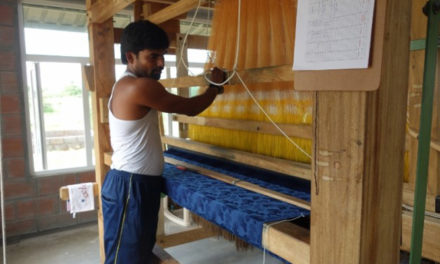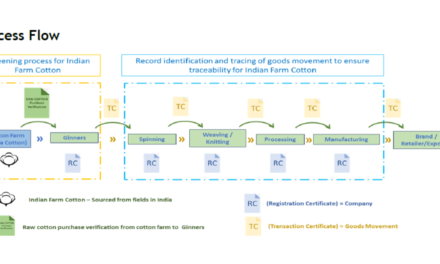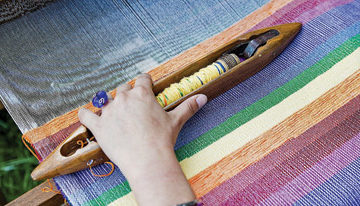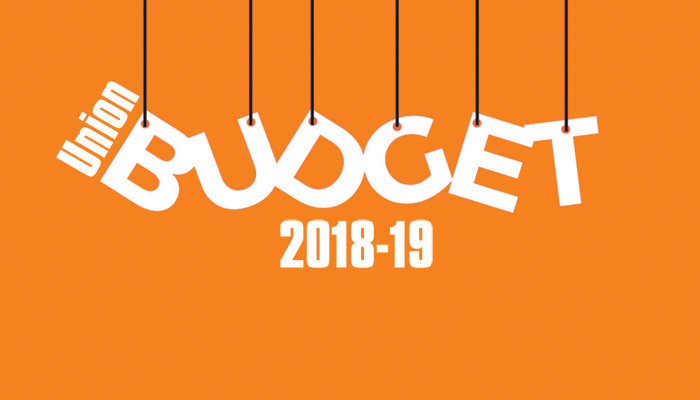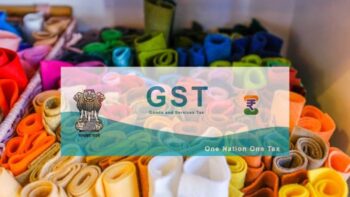 The Kashi readymade garments association, weavers and textile traders recently staged a demonstration in protest against the proposed GST hike on various textile products from 5 per cent to 12 per cent. The traders and weavers unanimously demanded that government should roll back the proposed GST hike on various textile products.
The Kashi readymade garments association, weavers and textile traders recently staged a demonstration in protest against the proposed GST hike on various textile products from 5 per cent to 12 per cent. The traders and weavers unanimously demanded that government should roll back the proposed GST hike on various textile products.
Recently, in the GST counselling meeting chaired by union finance minister Nirmala Sitharaman, it has been decided to increase the GST to 12 per cent from 5 per cent on readymade garments and footwear worth up to ₹1000 with effect from January 1, 2022. This change will adversely affect the business of retailers and wholesalers that are already passing through a bad phase due to subsequent two waves of Covid-19, said Shailesh Jaiswal, president of Kashi readymade garments association.
A very large section of the country’s population buys this category of apparel and footwear, whereas 2 years ago because of the inequalities and difficulties of GST in this business, the GST on these items were reduced from 12 and 18 to 5%. As a result of the above decision, a huge increase in tax collection and sales was seen and many companies were forced to offer products in the MRP range up to ₹ 1000. Consequently, the government, manufacturers, traders, and the public were greatly benefited, said Jaiswal.
In the name of tax restructuring in the GST Council, the decision to increase the GST of apparel and footwear from January 1, 2022, is completely impractical and illogical, said Patron Mahanagar Udyog Vyapar Samiti, Srinarayan Khemka. The proposed GST hike on various textile products is very painful for all the manufacturers, traders and public of the country, added Khemka.
Traders will have to pay GST on the remaining stock unsold by January 1, 2022, which is not justified. We strongly oppose such hikes, said the general secretary of the association, Kailash Yadav and added that they unanimously oppose the decision to hike GST on textile products.
Babu Bhai, a master weaver said, “Two subsequent waves of Covid-19 created a sort of disappointment in the entire textile sector. The outbreak of the second wave of Covid-19 calmed down. However, disappointment prevailed in the market till August. Since September, the market slightly improved as the traders from states like Andhra Pradesh, Telangana, Karnataka, Maharashtra placed new orders for silk yarn sarees weaved here.
As soon as a few cases of Omicron were confirmed in Karnataka, most of the traders cancelled their orders. There is a slowdown like situation in the textile market again. Weavers are struggling to make both ends meet.”
As soon as the proposed GST rate will be implemented, the prices of clothes will increase or go costlier due to which demand will dip which have to eventually compel to reduce production. Thus, the GST hike will cost dear to the weavers and many weavers would lose their jobs, he said and demanded that the government should roll back the proposed hike in GST on different textile products.
Zubair Adil, general secretary of Bunkar Udyog Madal an organisation that works for the cause of weavers, said that if the new GST rates are implemented, the weavers will suffer badly. Around 3 lakh weavers are associated with the Banarasi silk and Banarasi clothes industry in the entire Varanasi region. The government should think of them.
Manish Choubey, Anjani Mishra, Shri Vyapar Mandal Pandeypur President Hriday Gupta, Satish Gupta, Kamal Rupani, Shiva Agrahari, Amrish Nigam, Vijay Jaiswal Bhojubir Business Board President Om Prakash Gupta, Kishan Seth etc were present.



